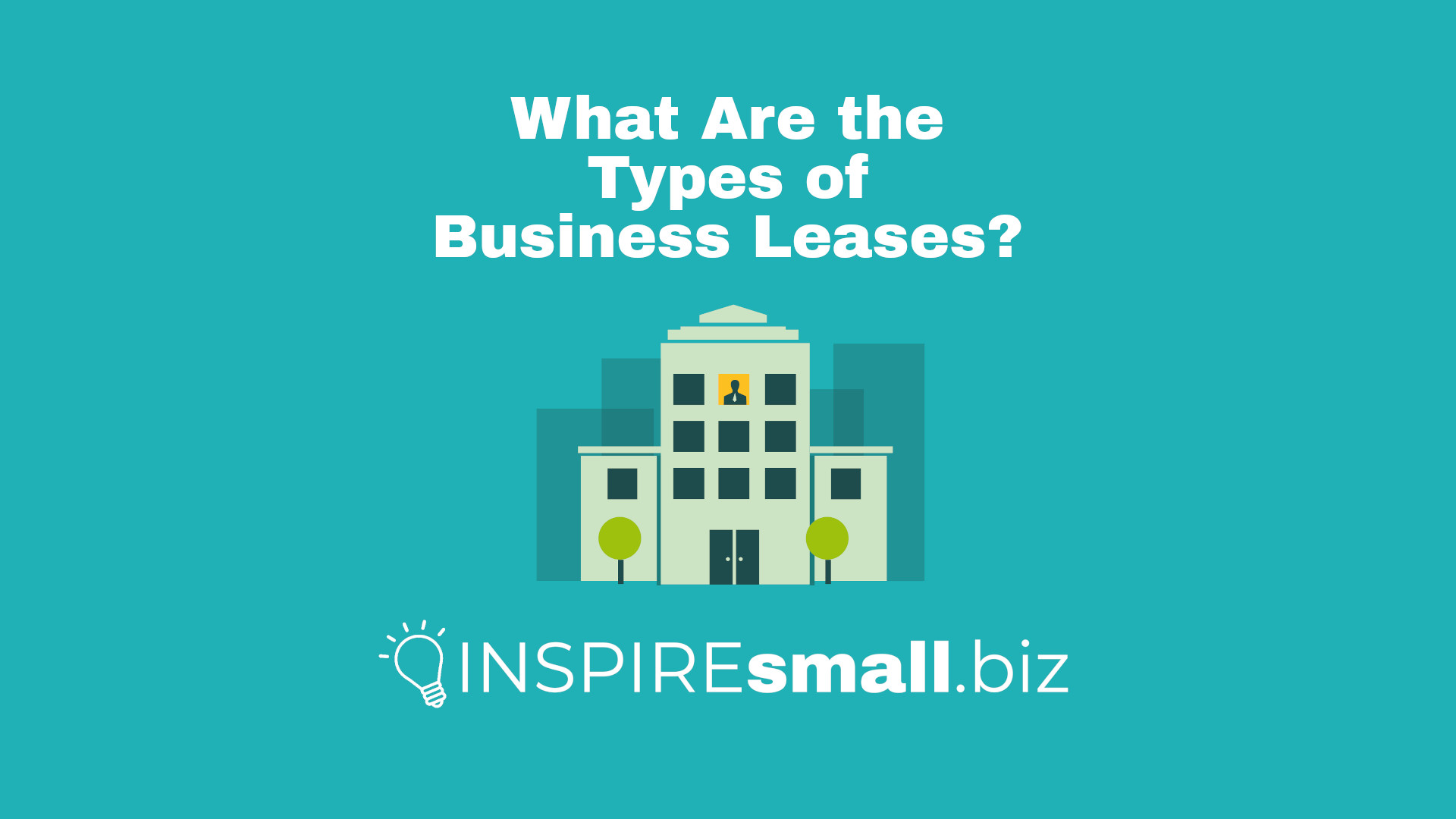When it comes to acquiring commercial space for your business, choosing the right type of lease is a crucial decision. Business leases come in various forms, each offering different terms and conditions that can significantly impact your bottom line.
In this article, we will explore the various types of business leases, helping you make an informed decision based on your specific needs and circumstances.
A Guide to the Types of Business Leases
Full-Service Lease (Gross Lease)
A full-service lease, also known as a gross lease, is a type of lease where the tenant pays a fixed rent amount, and the landlord covers most, if not all, of the operating expenses. These expenses typically include property taxes, insurance, maintenance, and utilities. This type of lease provides tenants with predictable monthly expenses, making it an attractive option for many businesses. However, the rent is often higher to account for the bundled services. Gross leases are commonly used in office buildings and some multi-tenant retail spaces.
Pros:
- Predictable monthly expenses.
- Lower administrative burden for tenants.
- Landlord handles property-related costs.
Cons:
- Typically, higher monthly rent.
- Limited control over property expenses.
- May have less visibility into cost breakdown.
Net Lease
Net leases are a category of leases where the tenant shares in the payment of certain property expenses in addition to the base rent. Net leases are frequently used in retail and commercial real estate, particularly in single-tenant properties like fast-food restaurants and standalone retail stores. There are three main variations of net leases:
Single Net Lease (N Lease)
In a single net lease, the tenant pays the base rent plus a portion of the property taxes. The landlord is responsible for other operating expenses.
Double Net Lease (NN Lease)
A double net lease requires the tenant to pay the base rent, property taxes, and a share of insurance premiums. The landlord takes care of other operating expenses like maintenance and utilities.
Triple Net Lease (NNN Lease)
A triple net lease is the most common type of net lease. In this arrangement, the tenant pays the base rent, property taxes, insurance premiums, maintenance costs, and utilities. The tenant assumes a significant share of the property’s operating expenses.
Pros:
- Shared property expense responsibility.
- Potential for lower base rent.
- Transparency in cost allocation.
Cons:
- Variable expenses that can increase over time.
- Administrative burden for tenants.
- Risk of unforeseen cost fluctuations.
Percentage Lease
Percentage leases are typically used in retail businesses, where the tenant pays a base rent along with a percentage of their gross sales. This arrangement allows landlords to share in the tenant’s success, which can be particularly advantageous for both parties in high-traffic, profitable locations. These leases are prevalent in shopping centers, malls, and other retail-oriented spaces.
Pros:
- Rent tied to business performance.
- Landlord benefits from tenant’s success.
- Potential for lower base rent in exchange for a percentage of sales.
Cons:
- Monthly expenses can vary significantly.
- Administrative complexities for both parties.
- Tenant pays more in times of higher sales.
Modified Gross Lease
A modified gross lease is a hybrid between a gross lease and a net lease. In this type of lease, the tenant pays a fixed base rent that includes some operating expenses, while other costs may be shared or paid by the landlord. Modified gross leases are commonly used in multi-tenant office buildings and can be tailored to accommodate specific tenant needs.
Pros:
- A balance between fixed and variable expenses.
- Flexibility in cost allocation.
- Common in multi-tenant office buildings.
Cons:
- Limited predictability in expenses.
- Potentially higher base rent compared to a pure gross lease.
- Administrative complexities.
Ground Lease
A ground lease is a unique arrangement where the tenant leases only the land from the landlord and is responsible for constructing and maintaining any buildings or improvements on the property. Ground leases are often long-term, with leases spanning several decades or more. Ground leases are frequently used for large-scale developments, such as shopping centers, office parks, and industrial facilities.
Pros:
- Lower upfront costs for tenants.
- Long-term stability.
- Common in real estate development.
Cons:
- Tenant bears the cost of construction and maintenance.
- Limited control over the land.
- Potential complications in lease negotiations.
Build-to-Suit Lease
In a build-to-suit lease, the landlord agrees to construct a property to the tenant’s specifications. Once constructed, the tenant enters into a lease for the property. This type of lease provides businesses with a tailored space that meets their specific needs. Build-to-suit leases are common in industries where specialized facilities are required, such as healthcare, manufacturing, and research and development.
Pros:
- Customized space that aligns with business requirements.
- Reduced upfront construction costs.
- Improved operational efficiency.
Cons:
- Longer lease commitment.
- Potentially higher rent compared to existing properties.
- Tenant responsibility for design and construction oversight.
Short-Term Lease vs. Long-Term Lease
Lease terms can vary significantly in duration. Short-term leases, often month-to-month or covering a few years, provide flexibility for tenants, but they usually come with higher monthly rent. Long-term leases, which can range from five years to several decades, offer stability and often come with lower monthly rent. The choice between short-term and long-term leases depends on your business’s stability and future growth plans.
Short-Term Lease
Pros:
- Flexibility for changing business needs.
- Ability to test a location before committing.
- Reduced upfront financial commitment.
Cons:
- Higher monthly rent.
- Uncertainty beyond the current term.
- Less favorable terms for tenants.
Long-Term Lease
Pros:
- Stability and predictability.
- Potential for lower monthly rent.
- Favorable terms for tenants.
Cons:
- Limited flexibility to adapt to changing circumstances.
- Longer financial commitment.
Renewable Lease
A renewable lease includes an option for the tenant to renew the lease at the end of its term. This type of lease provides both parties with a degree of predictability and continuity. Renewal options can vary in terms and conditions, so negotiation is crucial. Renewable leases are common in office spaces and other business properties where tenants seek long-term stability.
Pros:
- Assurance of extended occupancy.
- Ability to lock in favorable lease terms.
- Reduced need for relocation.
Cons:
- Potential for rent increases upon renewal.
- Lease renegotiation complexities.
- Uncertainty about future property needs.
Sale and Leaseback
A sale and leaseback arrangement occurs when a business sells a property it owns to a third party and then leases the property back from the new owner. This transaction frees up capital for the business while allowing it to continue operating on the premises. Sale and leaseback agreements are often used by businesses to optimize their real estate assets and release capital for expansion or debt reduction.
Pros:
- Immediate access to capital.
- Debt reduction and improved liquidity.
- Continued use of the property.
Cons:
- Loss of property ownership.
- Potentially higher lease costs.
- Limited control over property disposition.
Sublease
A sublease occurs when a tenant leases out part or all of their leased space to another party. The original tenant (the sublessor) remains responsible for the lease terms.
In Conclusion
Each type of business lease has its own advantages and disadvantages, and the choice depends on factors such as the nature of the business, the desired level of control, financial considerations, and the relationship between the tenant and the landlord. It’s important to thoroughly understand the terms of any lease agreement before entering into it.
Always Consult An Attorney
Before signing any lease, always consult an attorney. We are not attorneys and nothing about this article should be considered legal advice. Hiring an attorney to review a lease can help you avoid costly mistakes down the road and can advise you on making the right decision based on your unique business needs.



